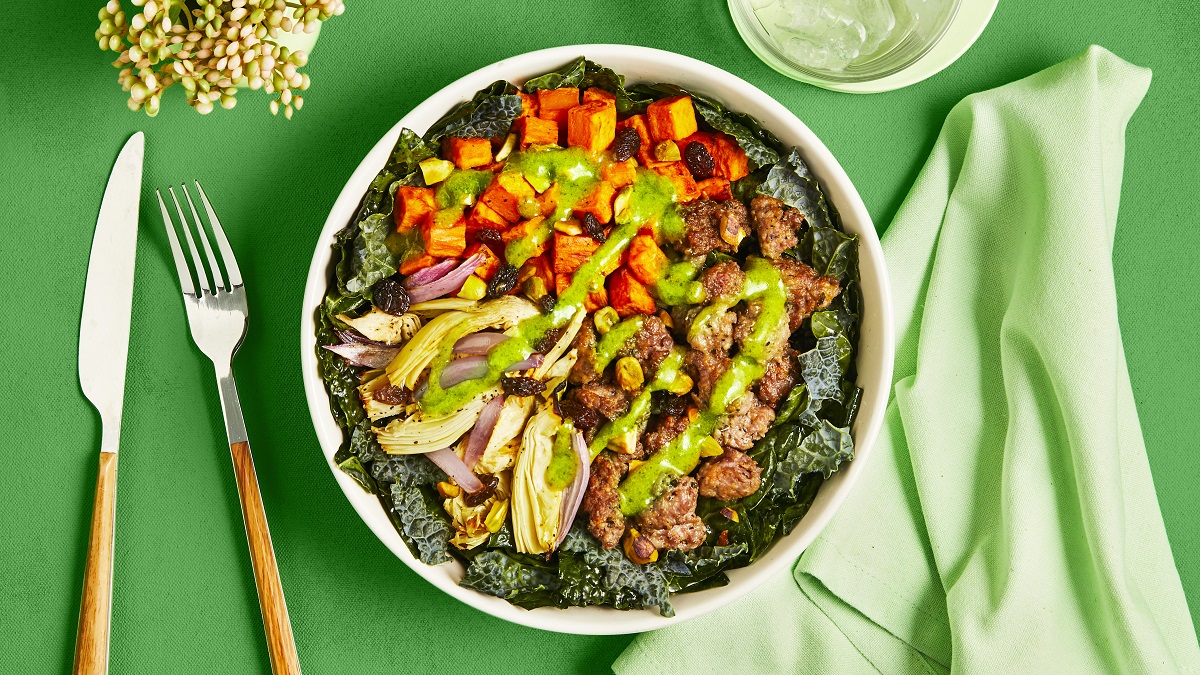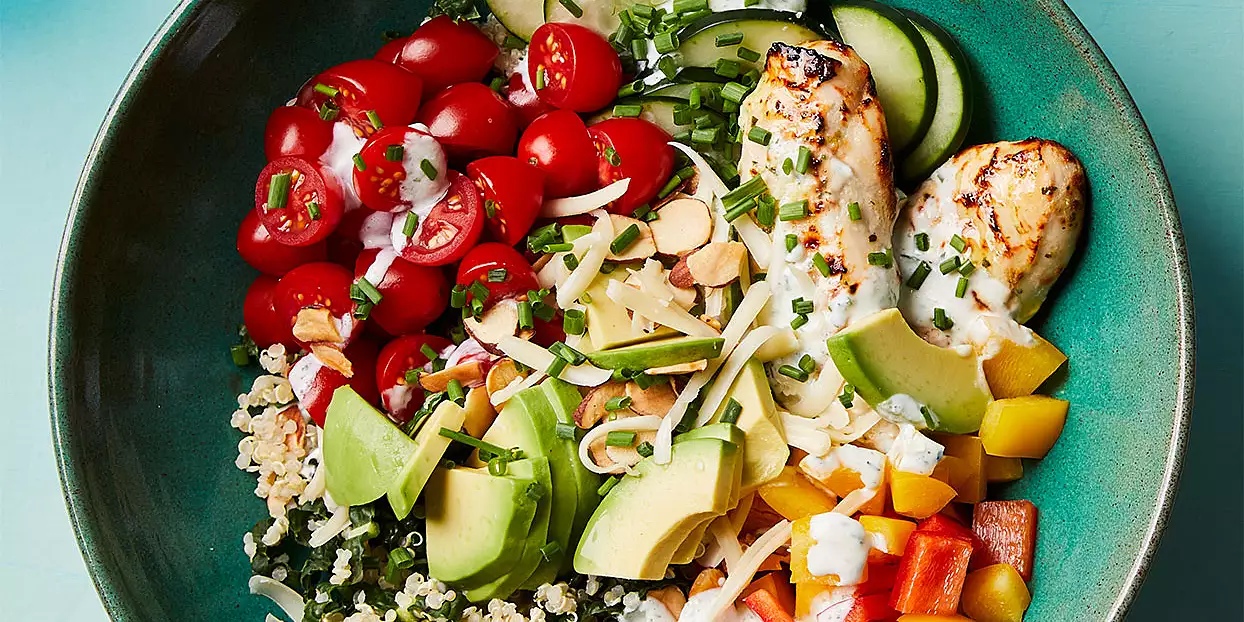
Best 4-Week Mediterranean Diet Menu Plan
The Mediterranean diet is known for its fundamental principles that improve your eating habits without leaving you feeling hungry or restricted. Some diets are highly stringent, but the Mediterranean diet is noted for its simplicity. This is one of the primary reasons it was selected as the Best Diet of 2022 by the U.S. News & World Report for the fifth year running in a row.
Not a single diet is used by all 21 nations that share a border with the Mediterranean Sea. Instead of drawing inspiration from meals commonly found in the Mediterranean, the diet emphasizes the abundance of healthful ingredients available in that region.
The Mediterranean diet includes seafood, vegetables, olive oil, and moderate amounts of wine. This is due to the region's proximity to numerous bodies of water.
Here we are going to mention the best 4-Week Mediterranean Diet Menu Plan you can follow.
Why You Ought To Consider Adopting A Mediterranean Diet
The Mediterranean diet is an excellent way of living to adopt if you are interested in improving your health and losing weight. There is a correlation between the Mediterranean diet and the following, as stated by the University of Pennsylvania Medicine:
- Both the prevention of diabetes and its treatment
- decreased likelihood of developing coronary disease
- Reduced likelihood of having high levels of cholesterol
- Loss of weight
The consumption of a diet that is relatively low in food derived from animals and relatively high in food derived from plants, mainly fruits and vegetables, is responsible for many of these positive effects.
The Mediterranean Diet: A Guide to Your Meals
- Eat many fruits and vegetables, nuts and legumes, whole grains, and other healthy foods.
- Olive oil should be your go-to pick when it comes to fat.
- Choose to consume a reasonable amount of fish and poultry.
- Moderate consumption of low-fat dairy products like cheese and yogurt is recommended.
- Eat only moderate amounts of red meat.
- You can have one glass of wine with dinner each day if you'd like.
Your 4-Week Meal Plan For The Mediterranean Diet
One of the best things you can do to put yourself in a position to be successful is to plan your meals for the week. The Mediterranean Diet emphasizes consuming a wide variety of foods, such as fruits, vegetables, lean proteins, whole grains, and healthy fats.
This concept is reflected in this four-week meal plan with a range of meals that focus on a plant-forward approach while also including some lean protein and dairy sources. It features 12 different recipes for breakfast, lunch, supper, snacks, and dessert and is intended to offer enough food for an entire week's worth of meals.
You would make a selection for one breakfast, one lunch, and one dinner to correspond to each day of the week. As you progress through the week, you should feel free to supplement your diet with more servings of fruits and vegetables and additional servings of nuts and seeds.
After you have gained some familiarity with each dish, feel free to combine elements from different words. Experimenting and trying new things is not only enjoyable, but it also has the potential to make you feel more content while maintaining your diet for a more extended period.
Week 1
Breakfast
- Peach Overnight Oats
- Shakshuka (aka baked eggs or eggs in purgatory)
- Sandwich with Avocado for Breakfast
Lunch
- A creamy soup made with roasted red peppers served beside a Greek salad, including cucumber "healthy noodles."
- Superfood salad made with quinoa, spinach, pomegranate seeds, and a citrus dressing.
- Tuna Salad With Yogurt
Dinner
- Pasta made with lentils served with a creamy sauce made from red peppers and spinach.
- Buddha Salad with Seeds and Greens Bulgur is served with Whole Chicken and is prepared in an Instant Pot.
- Your choice of nutritious grain, such as brown rice or quinoa, topped with shrimp cooked in a spicy red sauce and served with a side of broccoli or cauliflower that has been sautéed.
Snack/Dessert
- Almond Date Power Bites
- Smoothie with Ginger and Berries
- Caprese Snack Skewers
Week 2
Breakfast
- Breakfast Salad
- A Fried Egg Served on Top of Savory Oatmeal
- Greek yogurt topped with an espresso and fig compote.
Lunch
- Superfood salad with smoked salmon and broccolini
- A side of crusty whole-grain bread or pita is included with the avocado egg salad served on top of greens.
- Bowl of Farro Mediterranean Cuisine
Dinner
- Zoodles with a creamy feta dressing served in a Mediterranean style with a side of crusty bread or pita.
- Chicken Thighs with a Personal Panzanella Salad and a Crispy Mediterranean Coating
- Baked Salmon Cakes topped with Lemon Crema and served alongside Roasted Sweet Potatoes and Veggies.
Snack/Dessert
- Green Smoothie for Everyday Use
- Nutty Buttons
- Peaches in the Oven
Week 3
Breakfast
- Overnight Oats with Banana
- Egg Bake made with whole grains and served with toast.
- Breakfast Typical of the Mediterranean Make a scramble using your chosen fruit.
Lunch
- Sweet Potatoes Stuffed with Crab
- Simple Hummus Wraps Inspired by Middle Eastern Cuisine
- Greek Orzo Salad
Dinner
- Salmon glazed with Dijon mustard and served with a plate of tomatoes, avocados, and goat cheese.
- A dish of Lentil Bolognese with Zucchini Noodles is served beside a straightforward salad.
- Chicken Cacciatore is made in a slow cooker and served on top of any whole grain of your choosing (to help soak up the sauce) and wilted greens.
Snack/Dessert
- Fruit Smoothie
- Pecan Protein Balls
- It is served with raw vegetables and pita bread made with nutritious grains and roasted red pepper hummus.
Week 4
Breakfast
- Muffin Tin Frittata
- Oatmeal with Berries Baked Into It
- Breakfast Bowl Containing Muesli
Lunch
- Falafel that has been baked, served with pita bread, tzatziki sauce, chopped tomatoes, romaine lettuce, and cucumbers.
- Toast topped with smoked salmon avocado and your choice of fruit.
- Pasta salad with grilled broccoli and bell pepper served warmly in Italian.
Dinner
- Fish baked on parchment paper served alongside your go-to whole grain.
- Served to stop a bed of greens, these burgers are made with sweet potato, black bean, and quinoa.
- Chicken Skewers inspired by the flavors of the Mediterranean are served with a tahini-based dipping sauce, roasted broccoli, and sweet potatoes.
Snack/Dessert
- Dessert Hummus Balls made with Oatmeal, Raisins, and Raisins.
- Kale Chips Baked in the Oven
- Ricotta with dried figs
Be Aware of the Typical Portions
According to the Harvard T.H. Chan School of Public Health, the Mediterranean diet may benefit one's health. However, the diet has no particular guidelines for portion size or calorie intake. Even though the food you're eating is healthy, you still have the potential to put on extra weight if you don't watch your portion sizes.
For instance, polyunsaturated and monounsaturated fats, which are included in the Mediterranean diet and can be found in nuts, olives, and seafood, are better for your heart than saturated fat, but they contain a lot of calories. No matter the type of fat, each gram of fat has the same number of calories. Regardless of how nutritious nuts or other high-calorie foods may be, limiting one's consumption to the appropriate portion size when eating them is essential.
















